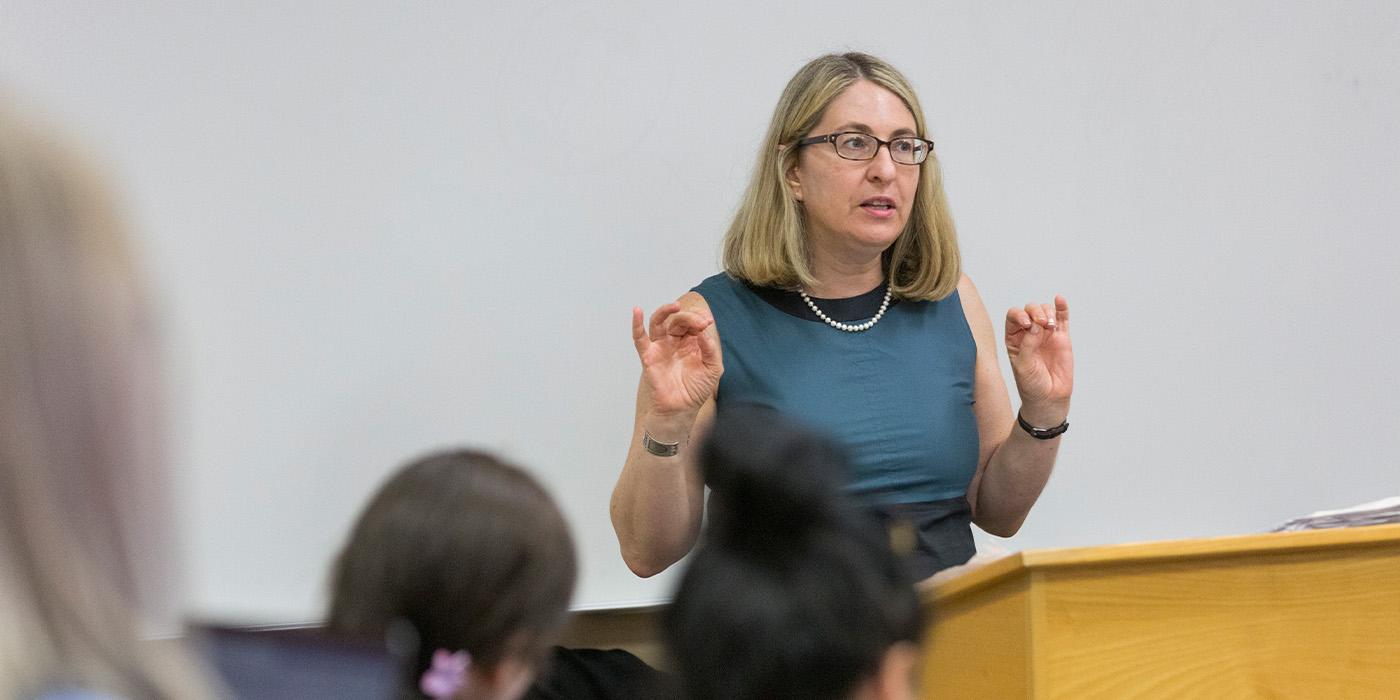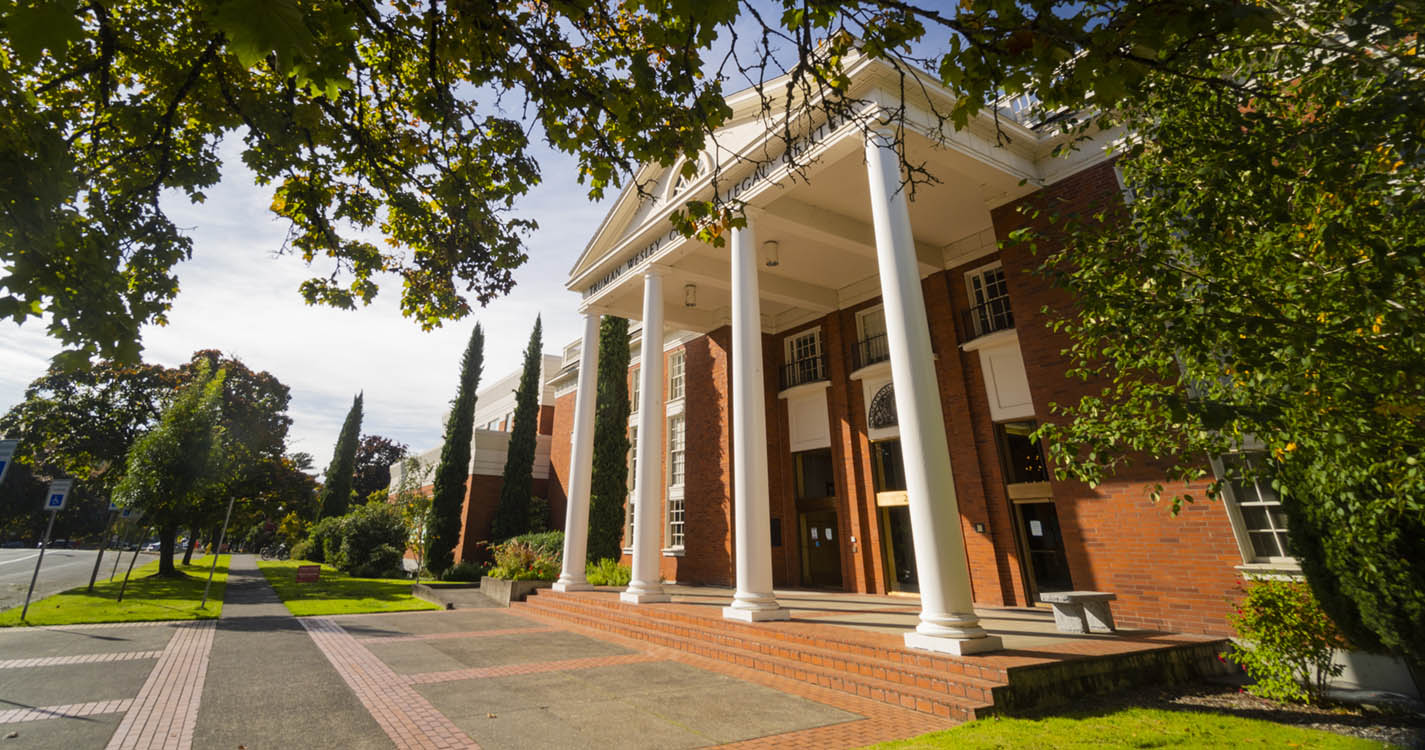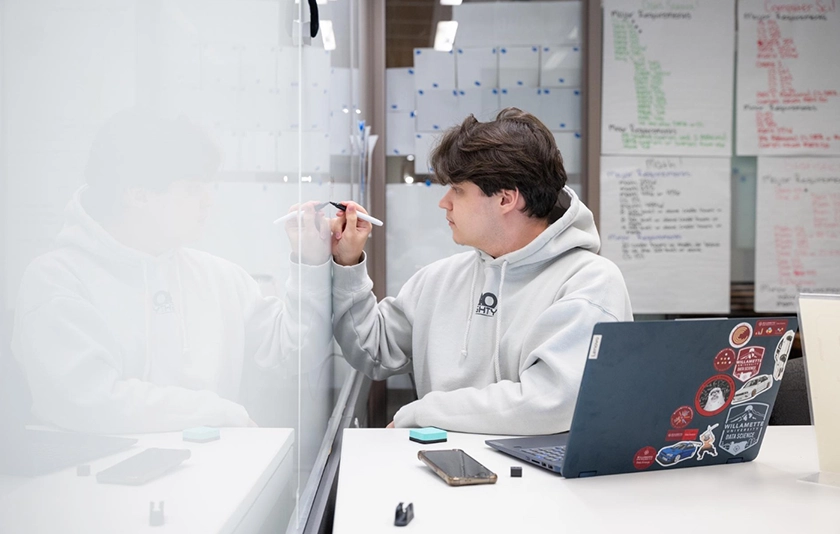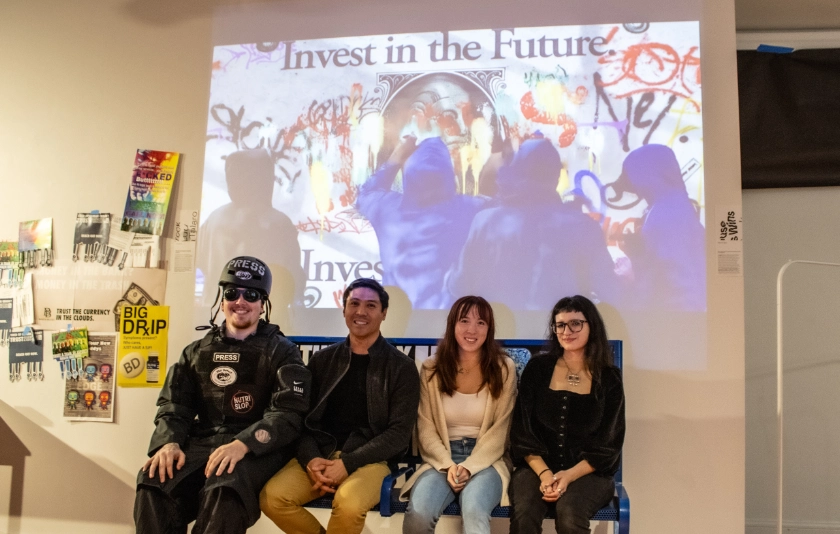When she’s not teaching or meeting with students, Professor Laura I Appleman always looks forward to digging into her research. Her enthusiasm for uncovering new information is evident.
“My writing always follows my current intellectual passions, helped along by my assiduous research skills,’” she says. “When I’m not in the classroom, I love reading all this fascinating stuff. That’s one of the great parts of being a law professor: the research and scholarship.”
Appleman enjoys teaching a variety of criminal law classes at Willamette Law, where she has been a professor since 2006. She teaches Criminal Procedure I (the Fourth, Fifth and Sixth Amendment), Family Law, Race and the Law, Sentencing, and Criminal Procedure II (“Bail to Jail.”) She discusses her research with students as much as possible, both in and out of the classroom, because that’s what she works on when she isn’t teaching.
“That’s the whole Appleman,” she says.
This summer, she was elected to the American Law Institute after being nominated by Professor and Dean Emeritus Symeon Symeonides. According to its website, the ALI “is the leading independent organization in the United States producing scholarly work to clarify, modernize, and otherwise improve the law.” Members who are lawyers and professors take part in the ALI to develop the law and give back to their profession.
“It’s an honor to be elected,” Appleman says. “I’m deeply grateful to Symeon for nominating me.”
Aside from teaching her courses and learning more about the ALI, Appleman is hard at work on her scholarly research interests, which currently focus on private correctional services and the role of eugenics in the criminal system. Her latest two articles, published in Hastings Law Journal (2024) and forthcoming in Maryland Law Review (2025), center on the significant role of ‘Big Capital,’ — which she defines as private equity, large publicly traded corporations and international insurance companies — and its provision of privatized prison services. Over the past 20 years, Big Capital has made an enormous amount of money on incarceration and alternative corrections, all relatively under the radar of the American public.
“People are beginning to generally become more aware that when private equity becomes involved in public works, it’s great for private shareholders, but terrible for the public,” she explains. “These companies got into prisons and prison services because it’s so incredibly profitable. There is no transparency with private equity. It’s terrible for those under correctional control of any sort.”
What she has found in her research is that the two largest public correctional services companies, Geo Group and Corecivic, are part of most people’s mutual funds; anyone who has a 403(b) or 401k likely owns stock in them. Although the Biden administration vowed it would put an end to federal use of private prisons, Appleman’s work highlights the degree to which federally funded private correctional institutions are still in operation. There’s a lot going on right underneath people’s noses, she says.
It’s facts like these that Appleman uncovers and brings together with her scholarship, hoping to bring it to other scholars’ and policy makers’ attention, and hopefully to that of a wider audience, as well.
In other pieces, Appleman has focused on the role of eugenics in criminal law, something she says still shapes the criminal system in the 21st Century, even if people don’t want to admit it.
Right now, she is writing an article on the creation of the modern Progressive criminal. In the early part of the 20th Century, Progressive reformers completely reformed the criminal courts and sentencing, which was viewed as a great thing, she says. What’s been less discussed is the role of eugenics in creating these reforms.
“Both eugenics and the birth of modern psychiatry really affected court reform and sentencing reform,” she says.
Although she has written a few thousand words, she isn’t quite sure what form that particular article will take.
“But, in a time where there is a lot of focus on inequity in the law and society, it’s important to say, ‘Why is this, what’s the root cause, what’s going on?’” she says. “It’s been 100 years since the Progressive changes. Let’s be clear-sighted about how we got to places. If we’re going to change things, I think it’s important to know how we got there.”




